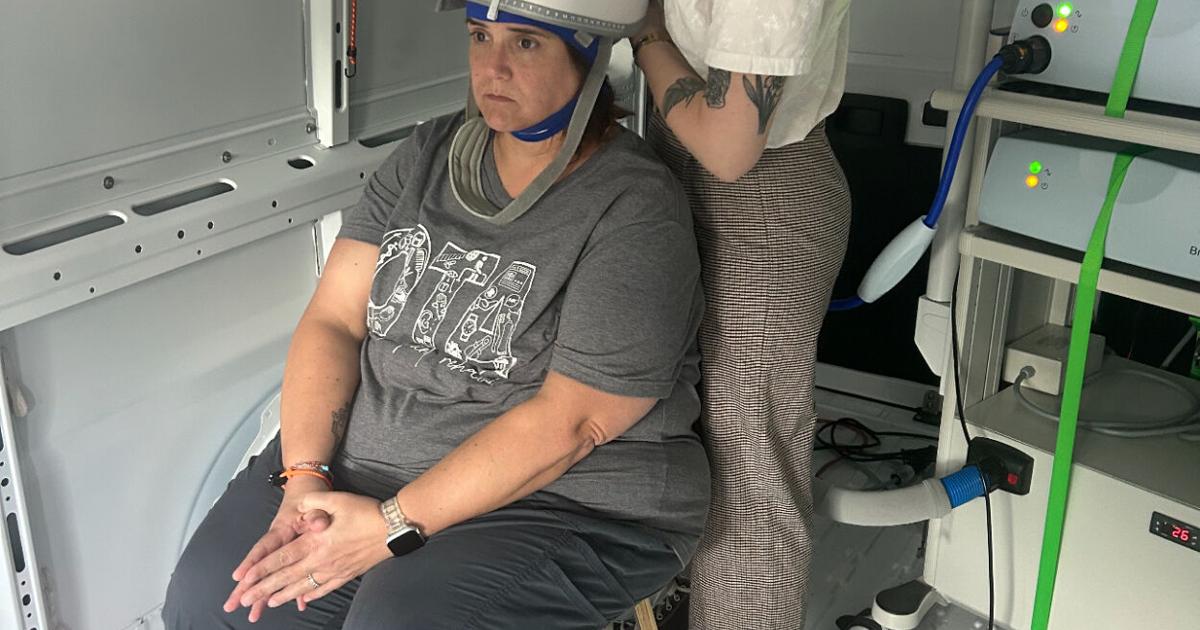Stimulating areas of the brain, particularly the prefrontal cortex that is the site of emotional regulation, among other things, helps to “reset” the brain in major depression, George said. The stimulation brings that regulating system “back on line, so that we can deal with our emotions that come from deep in the brain,” he said.
Those who are drug-resistant may just be harder to reach and need that stimulation to rebalance the brain, George said. Doing the stimulation over and over again in consecutive sessions helps to strengthen and reinforce those healthy connections, he said.
Kerns, who has worked with TMS at MUSC and the VA, said even though it has been around for a while it is “definitely underutilized,” even in places like Charleston.
“I think a lot of people still just don’t know about it, not just potential patients and community members, but also a lot of physicians don’t know about TMS,” she said.
Kerns opened her clinic recently so patients could receive it, as well as ketamine-assisted therapy and other medication therapy, in a more low-key setting.
“I think it can be kind of intimidating, going into places like big academic centers or big hospital systems when you’re struggling with anxiety and depression,” she said. “To have a place that feels friendlier, feels more inviting, where you can receive the same cutting-edge treatments for depression and OCD, was really important to me.”
A lot of the major cities now have TMS practitioners, George said, and a quick checks shows clinics in Anderson, Columbia, Greenville and Myrtle Beach in South Carolina, as well as in surroundings states. But the treatment might not be available to you “if you don’t live in one of the large cities,” George said. His rough calculation is there may be 75,000 patients in South Carolina with treatment-resistant depression, and perhaps a third of those will not be in a major metro area.
That can be a problem, particularly with the standard protocol, which is a treatment a day five days a week for six weeks. Researchers at Stanford University, who trained at MUSC, worked with a TMS machine manufacturer to pioneer a more accelerated approach. They gave patients one session an hour for 10 hours over five straight days, which they called “stacking” the treatments. A clinical trial of that approach showed great results, with nearly 80 percent being symptom-free at the end.
